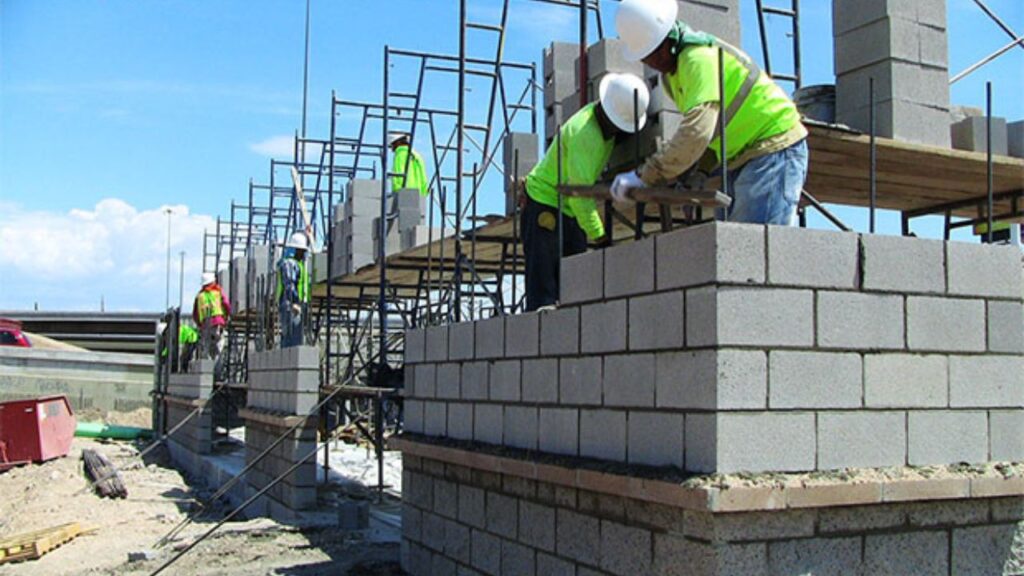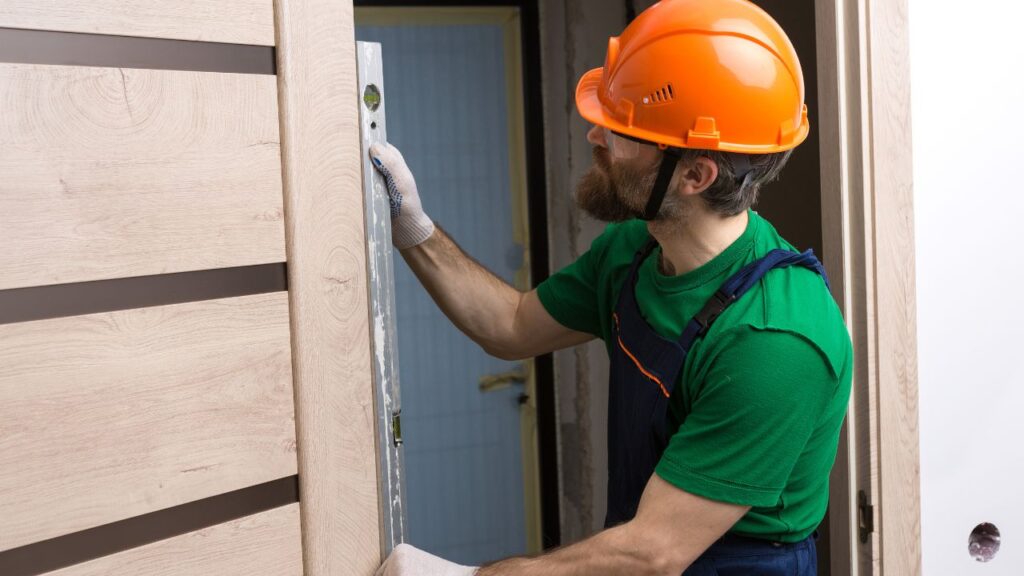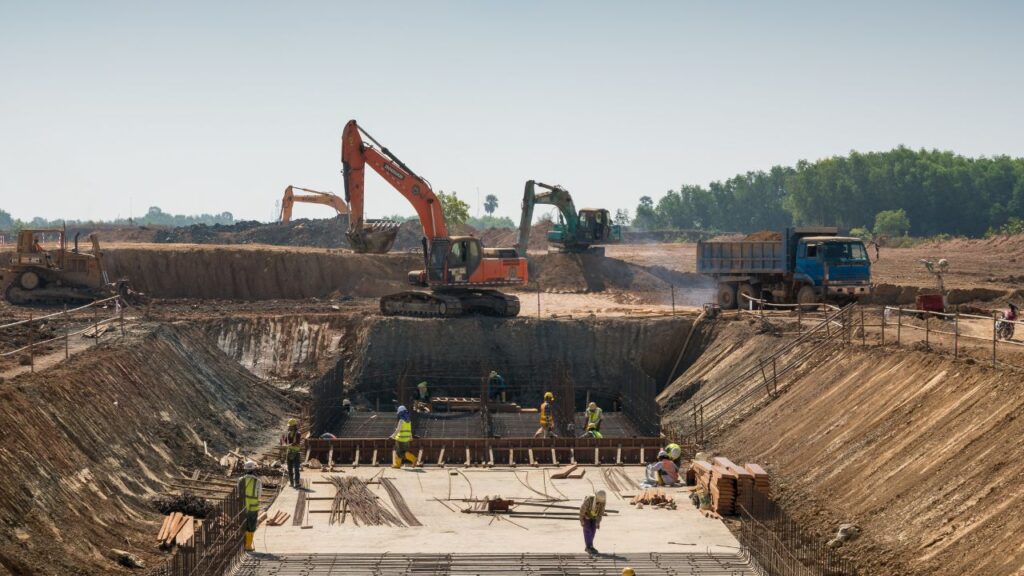- Homepage
- Blogs
Contractor Bidding Estimate Services
Leading provider of contractor bidding estimating.
Calculating the cost per square foot is a common and effective method contractors use to estimate construction project expenses. This approach provides a straightforward way to compare project costs, making it easier for clients to budget and plan. In Florida, the average contractor bidding estimate ranges from $180 to $480 per square foot, with variations based on the construction type, materials, and complexity of the project.

Construction Type | Average Cost Per Square Foot |
Residential Single-Family | $180 – $360 |
$240 – $480 | |
High-End Custom Homes | $360 – $600 |
Importance of Accurate Estimates in Construction
Accurate construction estimates are essential for the success of any project. Whether you’re a contractor bidding for work or a client seeking services, precise estimates serve as a foundation for planning, budgeting, and decision-making. Here’s why accurate estimates matter:
Winning Projects
In competitive markets, a realistic and well-prepared estimate can make the difference between winning or losing a contract. Overbidding may price you out of consideration, while underbidding can raise doubts about your ability to deliver quality work. Accurate estimates strike a balance, showcasing your understanding of project requirements while remaining competitive, significantly increasing your chances of securing contracts.
Winning Projects
In competitive markets, a realistic and well-prepared estimate can make the difference between winning or losing a contract. Overbidding may price you out of consideration, while underbidding can raise doubts about your ability to deliver quality work. Accurate estimates strike a balance, showcasing your understanding of project requirements while remaining competitive, significantly increasing your chances of securing contracts.
Budget Control
Detailed and accurate estimates are key to maintaining control over project finances. They provide a clear breakdown of expected costs, including labor, materials, equipment, and contingencies. This helps prevent budget overruns and minimizes the risk of unforeseen expenses derailing the project. A well-managed budget also allows contractors to allocate resources efficiently, keeping the project on track financially and operationally.
Client Trust
Providing precise estimates fosters trust and transparency with clients. When clients see a detailed breakdown of costs, they feel confident in your professionalism and commitment to the project. Accurate estimates also reduce the likelihood of disputes over unexpected charges, creating a smoother working relationship and enhancing your reputation in the industry.
Get Acquainted with Estimation
Mastering Bids: 12 Pro-Level Bidding Tips for Construction Managers
Top 10 Tips to Running a Successful Construction Business
Profitability
For contractors, profitability hinges on accounting for all costs and contingencies in their bids. Overlooking even minor expenses can eat into profits or turn a project into a loss. Accurate estimates ensure that overhead costs, labor, materials, and profit margins are properly calculated, enabling contractors to deliver quality work without sacrificing their bottom line.
Types of Contractor Bidding Estimates
When bidding on a construction project, contractors use different types of estimates tailored to the project’s complexity, stage, and client needs. These estimates provide valuable insights into anticipated costs, ensuring both contractors and clients have a clear understanding of the financial scope.
Preliminary Estimates
Preliminary estimates are broad cost projections provided in the early stages of a project. These estimates offer clients a general sense of potential expenses, allowing them to gauge project feasibility and align their budgets. Contractors typically base preliminary estimates on past projects, industry averages, and initial project details. While not highly accurate, these estimates are invaluable for initial decision-making and planning, with adjustments made as the project progresses.
Detailed Cost Estimates
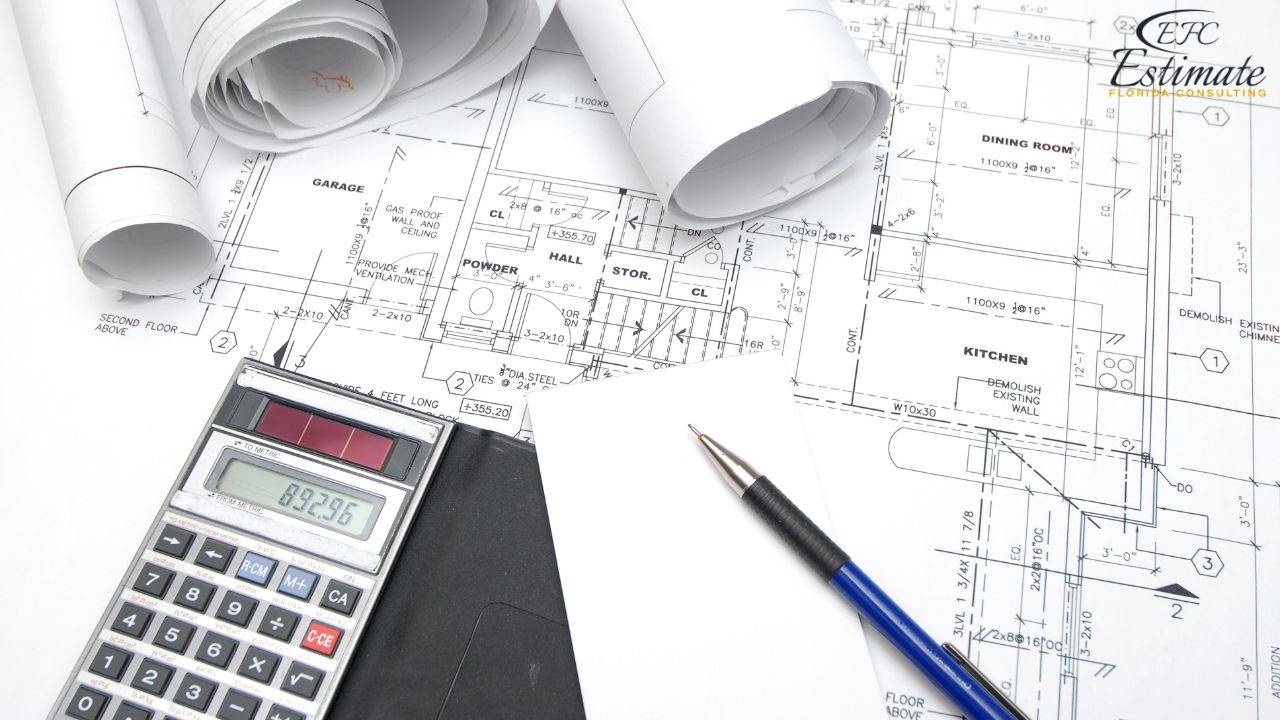
Detailed cost estimates are comprehensive and itemized, covering all aspects of a project, including materials, labor, equipment, and overhead costs. These estimates are typically prepared after reviewing project plans and specifications and are used for formal bidding, contract negotiations, and final budgeting. Detailed estimates ensure transparency and help mitigate unforeseen costs by accounting for every project element, from foundational work to finishing touches. This level of detail makes them a critical tool for securing project approvals and ensuring client confidence.
Unit Cost Estimates
Unit cost estimates calculate expenses based on specific units of work, such as per square foot of flooring, per cubic yard of concrete, or per ton of structural steel. These estimates are particularly useful for large-scale projects, as they allow contractors to price individual components accurately. Clients and contractors can use unit cost estimates to make informed decisions about materials, labor, and other resources. This approach is ideal for projects with repetitive tasks, such as road construction or large residential developments, as it simplifies cost tracking and adjustments.
Design-Build Estimates
In design-build projects, estimates are created as the design evolves, requiring close collaboration between contractors, architects, and designers. These estimates are dynamic and subject to regular updates, reflecting changes in design, materials, and client preferences. Design-build estimates demand flexibility and a proactive approach to ensure the project stays within budget while meeting design objectives. By integrating the design and construction phases, these estimates streamline communication and reduce discrepancies, making them an effective choice for complex or fast-track projects.
Steps to Create a Contractor Bidding Estimate
Creating an accurate contractor bidding estimate is essential for securing projects and ensuring profitability. A well-prepared estimate considers all project factors, including materials, labor, overhead, and potential risks. Here’s a step-by-step guide to creating a comprehensive contractor bidding estimate:
Understanding Project Requirements
Start by thoroughly analyzing the project’s specifications, blueprints, and scope of work. This step is crucial to understanding the client’s expectations, design elements, and technical requirements. Pay close attention to project deadlines, zoning regulations, and any special conditions outlined in the contract documents. Clearly defining the project’s goals ensures that your estimate aligns with the client’s vision and avoids miscommunication later.
Win More Projects With Us
Site Assessment and Measurements
Conduct a detailed on-site assessment to gather accurate measurements and evaluate site conditions. This step helps identify potential challenges, such as uneven terrain, soil quality, drainage issues, or access limitations, that could impact costs or timelines. Document all observations and use them to calculate realistic material quantities and labor requirements. Understanding the site’s condition early allows for more accurate budgeting and minimizes surprises during construction.
Identifying Materials and Labor Needs
Create a comprehensive list of all materials required for the project, including quantities, quality grades, and associated costs. Research current market prices for these materials, as fluctuations can significantly affect the budget. Labor costs should be calculated based on the number of workers needed, their skill levels, and the estimated hours required to complete the job. Consider local wage rates and any additional costs for specialized contractors or overtime to ensure an accurate projection.
Accounting for Overhead and Contingencies
Factor in all overhead expenses, including administrative costs, equipment rentals, permits, utilities, and insurance. These costs are often overlooked but can significantly impact profitability if not accounted for. Add a contingency amount—typically 10% to 20% of the total estimate—to cover unexpected issues, such as material shortages, weather delays, or design changes. This buffer ensures the project remains financially viable, even if unforeseen challenges arise.
Bidding for Different Types of Construction Projects
Bidding for construction projects varies significantly based on the type of project and its specific requirements. Residential, commercial, and government or infrastructure projects each demand unique considerations in terms of materials, compliance, and overall cost estimation. Here’s a closer look at the factors influencing bids for these types of projects:
Residential Construction Bids
Residential construction projects include single-family homes, townhouses, multi-family units, and apartment complexes. Bids for these projects typically emphasize costs for materials like wood, concrete, drywall, and finishes, as well as labor expenses. Customization plays a significant role in residential bids, as homeowners often request specific designs, high-end finishes, or sustainable building materials.
The average cost for residential construction projects ranges from $180 to $360 per square foot, depending on the scope and level of customization. Luxury homes or high-rise apartment buildings tend to fall on the higher end of this range due to additional requirements such as energy-efficient systems or premium materials. Residential bids must also account for landscaping, permits, and site preparation, which can influence the final cost significantly.
Commercial Construction Bids
Commercial construction projects include office buildings, retail spaces, restaurants, and warehouses. These bids require detailed cost breakdowns for structural components, HVAC systems, plumbing, electrical work, and compliance with commercial building codes. The need for durability, safety, and energy efficiency in commercial spaces often drives up costs.
The average cost for commercial construction ranges from $240 to $480 per square foot, depending on the building type, location, and complexity.
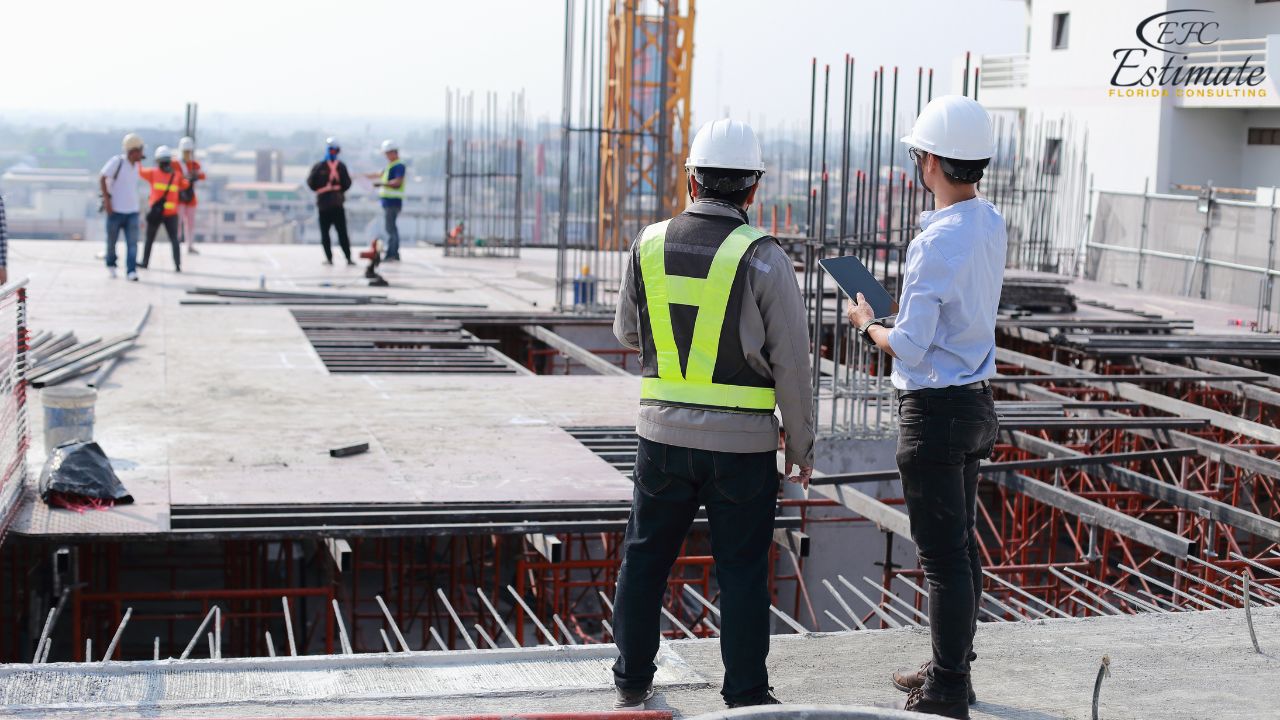
Additional costs may include specialized features like elevators, fire suppression systems, or advanced security setups. Commercial bids also need to consider the building’s intended use, as specific industries—such as healthcare or food service—have stricter requirements that can increase expenses.
Government and Infrastructure Bids
Government and infrastructure construction projects often involve public buildings, schools, transportation systems, or utilities. These projects are governed by stringent regulations and require meticulous documentation. Bids for government projects must include costs for permits, detailed inspections, and compliance with local, state, or federal guidelines.
Additional expenses can arise from requirements like union labor, prevailing wage laws, or sustainable building certifications. The complexity of these projects often results in higher administrative costs. Penalties for delays or non-compliance can also be significant, making accurate scheduling and risk management a critical part of the bidding process. Depending on the scope, costs for these projects typically range widely, often starting at $250 per square foot for basic infrastructure and going up significantly for specialized facilities like airports or hospitals.
Key Cost Components in Contractor Bidding Estimates
When contractors prepare a project bid, the estimate is broken down into several key cost components. These elements collectively determine the total project cost and vary based on the project’s size, complexity, and location. Below is a detailed look at the primary factors influencing contractor bids.
Materials Cost
Materials typically account for 48% to 72% of the total project cost, making them one of the largest components of a construction estimate. Essential materials include concrete, steel, lumber, insulation, and specialized finishes, depending on the project’s requirements. The cost of materials can fluctuate due to supply chain issues, market demand, and regional availability. For example, high-grade finishes or sustainable materials may significantly increase expenses, but they can also add long-term value to the project.
Labor Cost
Labor costs form 36% to 60% of the total estimate and include wages, employee benefits, and fees for subcontractors. This component varies based on the project’s complexity, the skill level required, and local wage rates. For instance, projects requiring skilled trades like electricians or masons will have higher labor costs. Efficient workforce management and scheduling can help reduce labor expenses without compromising quality.
Equipment Cost
Equipment costs encompass the rental or purchase of machinery, fuel expenses, and maintenance. These costs can range widely based on the type and duration of equipment use. For example, heavy machinery like cranes or excavators for large-scale construction projects can significantly increase this component. Equipment costs are generally higher for projects requiring specialized tools or extended timelines, often contributing 12% to 20% of the total estimate.
Permit and Regulatory Costs
Permit and regulatory costs include fees for building permits, inspections, and meeting local compliance standards. These expenses typically range from $2,400 to $12,000 or more, depending on the project’s size and location. For example, projects in densely populated or environmentally sensitive areas often require additional permits and approvals, which can raise costs. Staying compliant with local regulations is crucial to avoiding fines and project delays.
Overhead and Profit
Overhead includes administrative expenses like office operations, insurance, marketing, and utilities. Profit margins, which compensate contractors for their expertise and risk, usually range from 6% to 24% of the total estimate. Together, overhead and profit represent a significant portion of the bid. Properly accounting for these ensures that contractors remain competitive while covering business costs and earning a reasonable profit.
Download Template For Contractor Bidding Project Breakdown
- Materials list updated to the zip code
- Fast delivery
- Data base of general contractors and sub-contractors
- Local estimators

Common Mistakes in Contractor Bidding Estimates
- Underestimating Costs: Failing to account for all expenses can lead to budget overruns.
- Ignoring Contingencies: Not including a buffer for unexpected costs can hurt profitability.
- Overlooking Small Details: Missing minor components like fasteners or sealants can impact the overall budget.
Tips for Winning Bids with Competitive Estimates
- Understand the Client’s Priorities: Tailor your bid to align with the client’s goals and preferences.
- Focus on Value: Highlight cost-effective solutions and long-term benefits.
- Be Transparent: Provide a detailed breakdown of costs to build trust with clients.
Conclusion
Creating accurate and competitive contractor bidding estimates is essential for success in the construction industry. By understanding the key components of cost estimation, leveraging advanced tools, and avoiding common mistakes, contractors can enhance their chances of winning projects while maintaining profitability. At Estimate Florida Consulting, we are dedicated to helping contractors develop precise estimates that meet client expectations and project requirements.
Frequently Asked Question
A contractor bidding estimate is a detailed projection of the costs associated with a construction project. It includes calculations for materials, labor, equipment, permits, and other overhead expenses. This estimate helps contractors submit competitive bids to secure projects and ensures clients have a clear understanding of project costs.
The cost per square foot is a standard method for estimating construction project expenses. In Florida, the average cost per square foot ranges as follows:
- Residential Single-Family: $180 – $360
- Commercial Buildings: $240 – $480
- High-End Custom Homes: $360 – $600
These costs vary depending on the project's complexity, materials, and type.
Accurate estimates are crucial for:
- Winning Projects: Competitive, realistic bids increase the chances of securing contracts.
- Budget Control: Detailed estimates prevent cost overruns and manage resources effectively.
- Client Trust: Transparency in costs builds confidence and reduces disputes.
- Profitability: Properly calculated estimates ensure contractors achieve their desired profit margins.
Contractors use various estimates tailored to project needs:
- Preliminary Estimates: Broad cost projections used in the early stages.
- Detailed Cost Estimates: Comprehensive and itemized breakdowns for final budgets.
- Unit Cost Estimates: Costs calculated per unit of work, such as per square foot or cubic yard.
- Design-Build Estimates: Dynamic estimates updated as the design evolves in design-build projects.
Creating an accurate estimate involves:
- Understanding Project Requirements: Analyze specifications, blueprints, and goals.
- Site Assessment and Measurements: Evaluate site conditions for realistic planning.
- Identifying Materials and Labor Needs: Calculate precise quantities and costs.
- Accounting for Overhead and Contingencies: Include administrative costs and buffers for unexpected expenses.
- Residential Bids: Focus on materials like wood and finishes, costing $180–$360 per square foot.
- Commercial Bids: Include costs for structural systems and compliance, ranging $240–$480 per square foot.
- Government Bids: Require strict regulatory compliance and documentation, with costs starting at $250 per square foot for basic infrastructure.
- Materials Cost: 48%–72% of the total budget, influenced by material type and availability.
- Labor Cost: 36%–60%, depending on required skills and project scope.
- Equipment Cost: 12%–20%, including rentals and maintenance.
- Permit and Regulatory Costs: $2,400–$12,000 or more based on location.
- Overhead and Profit: Covers administrative expenses and ensures profitability.
- Underestimating Costs: Omitting expenses leads to overruns.
- Ignoring Contingencies: Lack of a buffer for unexpected challenges.
- Overlooking Small Details: Missing items like fasteners or sealants impacts the budget.
- Understand the Client’s Priorities: Tailor estimates to align with goals.
- Focus on Value: Emphasize cost-effective and durable solutions.
- Be Transparent: Provide detailed breakdowns to build trust.
Estimate Florida Consulting specializes in precise, competitive estimates tailored for Florida's construction industry. Our expertise helps contractors win bids, stay on budget, and meet client expectations efficiently. Contact us to elevate your estimating process!
Comprehensive Trade-Specific Estimates
At Estimate Florida Consulting, we offer detailed cost estimates across all major trades, ensuring no part of your project is overlooked. From the foundation to the finishing touches, our trade-specific estimates provide you with a complete and accurate breakdown of costs for any type of construction project.

Testimonials
What Our Clients Say
We take pride in delivering accurate, timely, and reliable estimates that help contractors and builders win more projects. Our clients consistently praise our attention to detail, fast turnaround times, and the positive impact our estimates have on their businesses.
Estimate Florida Consulting has helped us win more bids with their fast and accurate estimates. We trust them for every project!

Steps to Follow
Our Simple Process to Get Your Estimate
01
Upload Plans
Submit your project plans, blueprints, or relevant documents through our online form or via email.
02
Receive Quotation
We’ll review your project details and send you a quote based on your scope and requirements.
03
Confirmation
Confirm the details and finalize any adjustments to ensure the estimate meets your project needs.
04
Get Estimate
Receive your detailed, trade-specific estimate within 1-2 business days, ready for your project execution.





